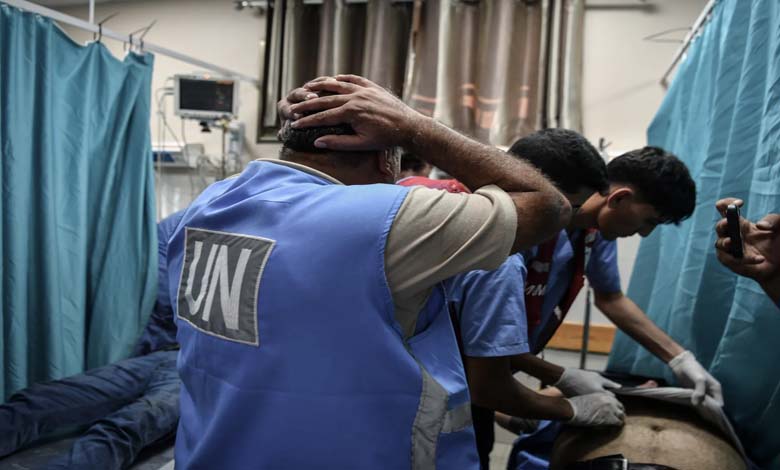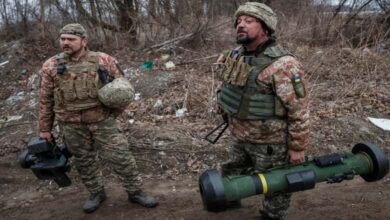The United Nations warns of a health disaster in Gaza for these reasons

With the breakdown of health facilities, water and sanitation networks, and the bombings that targeted some hospitals during the days of the war, the United Nations, in its latest statement, warned that at least (1.7) million displaced Palestinians in Gaza are facing a significant risk of the spread of infectious diseases.
The United Nations Office for the Coordination of Humanitarian Affairs stated that nearly 80% of Gaza‘s population has become internally displaced, with about (896,000) displaced people residing in (99) facilities in the central and southern parts of the Strip.
The statement mentioned that significantly increasing numbers of infections have been recorded, such as diarrhea, acute respiratory infections, skin inflammations, and cases related to hygiene, such as lice infestations, due to overcrowding and poor sanitary conditions in United Nations shelters. The UN Office for the Coordination of Humanitarian Affairs added that due to the limited space inside the shelters in the south, most displaced men and older boys are forced to stay outside, or in schoolyards, or on the streets, next to the outer walls of the shelters.
Reports indicated that about (400) Palestinians moved on Friday from Gaza City and its northern areas to the south through a “corridor” created by the Israeli army for the evacuation operation along Salah al-Din Road, the main traffic artery between the north and south.
The statement explained that hunger is the main reason for this mass displacement, as residents of northern Gaza have not received any food aid for weeks.
Concerns about the greater and faster spread of diseases in Gaza are increasing as winter approaches.
A week ago, the World Health Organization sounded the alarm about the possibilities of the rapid spread of infectious diseases in Gaza and called for the expedited delivery of humanitarian aid to various parts of the Strip, including fuel, water, food, and medical supplies.
The shortage of fuel has also led to the suspension of all solid waste collection activities, creating a conducive environment for the rapid and widespread spread of insects and rodents that can transmit diseases.
The organization emphasized that the danger is compounded for displaced populations, especially as a large number of them live in overcrowded shelters lacking adequate personal hygiene facilities and secure water.












